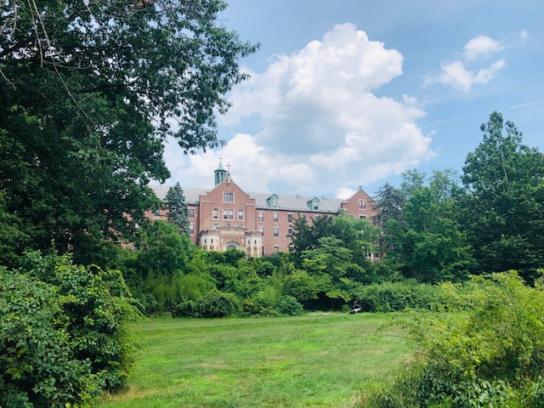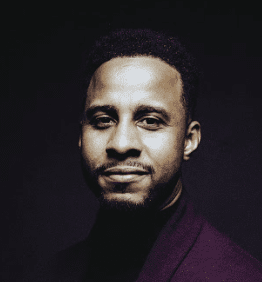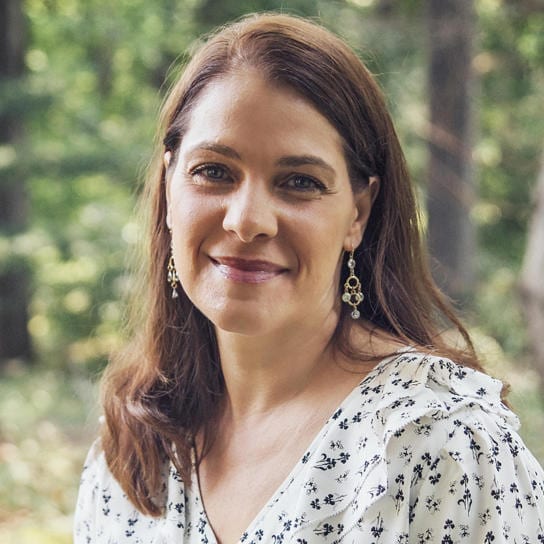Visionary Directors Join the Garrison Institute

Visionary Directors Join the Garrison Institute
The Garrison Institute is pleased to welcome two dynamic members to our senior team, Dr. Angel Acosta and Lina Pasquale.
Lina and Angel bring diverse backgrounds and passions to their new roles at the Institute, with inspiring plans for expanding their respective programs to reach new audiences and provide much-needed tools for resilience and sustainability across multiple sectors. To learn more about their vision for these initiatives, read their statements below:

Dr. Angel Acosta joins as Director of the inaugural Garrison Institute Fellowship, a new initiative that welcomes eleven emerging contemplative leaders. Dr. Acosta will mentor and collaborate with these innovative changemakers to initiate programming across intersections of the arts, contemplative practices, social justice and education.
What is your vision for the GI Fellowship?
My vision for the Garrison Institute Fellowship is to provide an experience that allows each Fellow to explore the science of interconnection, the power of awareness-based contemplative wisdom, and the urgency for collective healing. The current disequilibrium we are experiencing when it comes to our ecological environment, polarized political landscape and pervasive structural inequality beckon us to think the world anew. Our Fellows take on the challenge to help co-create a better future. I have been deeply inspired by the Dalai Lama’s Fellowship Program, based at the University of Virginia. It acknowledges that there is value in creating intense and dynamic experiences for people from across the globe to come together to build a more compassionate society.
What projects do you hope to see manifest?
This year-long journey will nurture Fellows in the process of carrying out artistic, research-based and community-based projects that will expand the boundaries of fields like psychology, social justice, trauma-informed care, mindfulness and a few others. I see the Fellowship as a means to create and curate projects that emphasize interdependence and mutuality in various contexts.
What does it mean to curate a learning journey for people who are brilliant and want to amplify their work?
It means that this is a blessing. To have committed scholars and practitioners who are willing to push the boundaries of their respective fields in the name of societal transformation is a gift. Here some of the questions that we will explore: what are the practices and scientific modalities that can enhance interconnection between peoples, ideas and ways of being? What are the limits of canonized or formalized ways while in the pursuit of social change? What is the role of contemplative wisdom in the context of developing better planetary health. The selected fellows emerge from an array of fields: psychologists, anthropologists, artists, musicians, poets, mindfulness practitioners, healers, activists and architects. They will help usher in new understandings.
Why the Garrison Institute, why now?
During these dark times, when many systems are being disrupted, a logical move is to find sanctuary. The Garrison Institute has served as a sanctuary for so many people who come here to teach, study and restore. We need organizations like ours to be luminous, to shine brighter than ever before. For me, I now take refuge at the Garrison Institute and, in turn, create a refuge for our Fellows.

Lina Pasquale joins as the Director of the Contemplative-Based Resilience Project (CBR), which provides resilience trainings for direct service providers and caregivers, including health care professionals, social workers, humanitarian aid workers, and first responders.
What is your vision for the CBR Project at the Garrison Institute?
My vision is to propel and sustain CBR and scale the project for greater reach and impact across multiple service delivery organizations, particularly during this time of COVID responsiveness. I seek to bring forth avenues of innovation while keeping a steady focus on the core goals of CBR, which are Awareness, Balance and Connection.
What are some of the unique elements of the program and why is this type of knowledge and training so important to disseminate now?
CBR’s evidence-based resilience training program cultivates awareness of psychological and physiological manifestations of stress, equipping participants with contemplative tools to respond in ways that encourage balance and connection with self and others. CBR offers participants the opportunity to develop meditation, mindfulness and movement practices to buffer the impact of stress through accessible and portable tools, which are proven to alleviate stress and increase positive well-being. It’s important that we support and nourish caregivers, first responders, direct-service and essential workers, overall. These individuals are vulnerable to on-going stress and burnout and in some cases, vicarious trauma. CBR offers a safe environment to bring awareness to these realities while offering restorative and transformative tools that promote resiliency so that participants can “Be Well to Serve Well”.
Why the Garrison Institute? Why now?
I continue to be engaged and excited about the opportunity to work alongside members of the GI team to deepen and widen the scope of CBR delivery domestically, while also fostering collaboration with the international CBR partners. The Garrison Institute’s organizational values are intrinsically aligned with the philosophy of CBR, which is “Be Well to Serve Well.” GI has an intentional focus to deliver contemplative resiliency-based practices for those at the front lines of serving others, often these are the “unsung heroes” of our society. This remains at the center of CBR and will continue to be so as the project evolves, in service of society’s heroic caregivers.
Angel Acosta Bio:
For the last decade, Angel Acosta has worked to bridge the fields of leadership, social justice, and mindfulness. He holds a doctorate degree in curriculum and teaching at Teachers College, Columbia University. Acosta has supported more than educational leaders and their students by facilitating leadership trainings, creating pathways to higher education, and designing dynamic learning experiences. His dissertation explored healing-centered education as a promising framework for educational leadership development.
After participating in the Mind and Life Institute’s Academy for Contemplative Leadership, Acosta began consulting and developing learning experiences that weave leadership development with conversations about inequality and healing, to support educational leaders through contemplative and restorative practices. As a former trustee for the Center for Contemplative Mind in Society, he participated as a speaker and discussant at the Asia Pacific Forum on Holistic Education in Kyoto, Japan. He continues to consult for organizations like the NYC Department of Education, UNICEF, Columbia University and others. Over the last couple of years, he has designed the Contemplating 400 Years of Inequality Experience–a contemplative journey to understand structural inequality. He’s a proud member of the 400 Years of Inequality Project, based at the New School.
Angel will be offering a Virtual Workshop on October 15th, “Contemplating 400 Years of Inequality: A Healing-Centered Communal Practice”
Lina Pasquale Bio:
Lina E. Pasquale holds two graduate degrees from Teachers College, Columbia University and The New School for Social Research. A mission-driven senior and executive leader with over two decades tenure in the social and human services sector, she has expertise in advancing traumatic stress theory into practice across multiple service industries. She has worked with non-profits and government agencies utilizing a strengths-based and resiliency-centered approach to promote well-being, health and social-emotional learning.
As a Senior Division Director, she operated residential foster care programs and led the agency’s trauma-informed practice and Adverse Childhood Experiences awareness campaign across educational, community-based, foster care, juvenile justice and supportive housing programs. As an Executive Team Member, Ms. Pasquale worked alongside executives to advance strategic initiatives, examine organizational finance structures and approve proposals for an agency operating 85+ programs throughout New York City.
A faculty member of the Sanctuary Institute of Trauma-Informed Care since its inception, she has provided expertise and consultation to multiple organizations and their leadership teams and held positions as a researcher and training specialist for Columbia University and Fordham University.
In 2014, Ms. Pasquale was awarded the opportunity to participate in the Morgan Stanley Strategy Challenge, resulting in the development of the Center for Trauma-Informed Practice, which transforms trauma-informed knowledge into resiliency practices by offering workshops, learning journeys, and expertise to clinical, social, educational, and human service professionals across NYC and the surrounding areas. She is committed to creating diverse and inclusive communities where an openness to share opinions and ideas are encouraged, respected and valued.